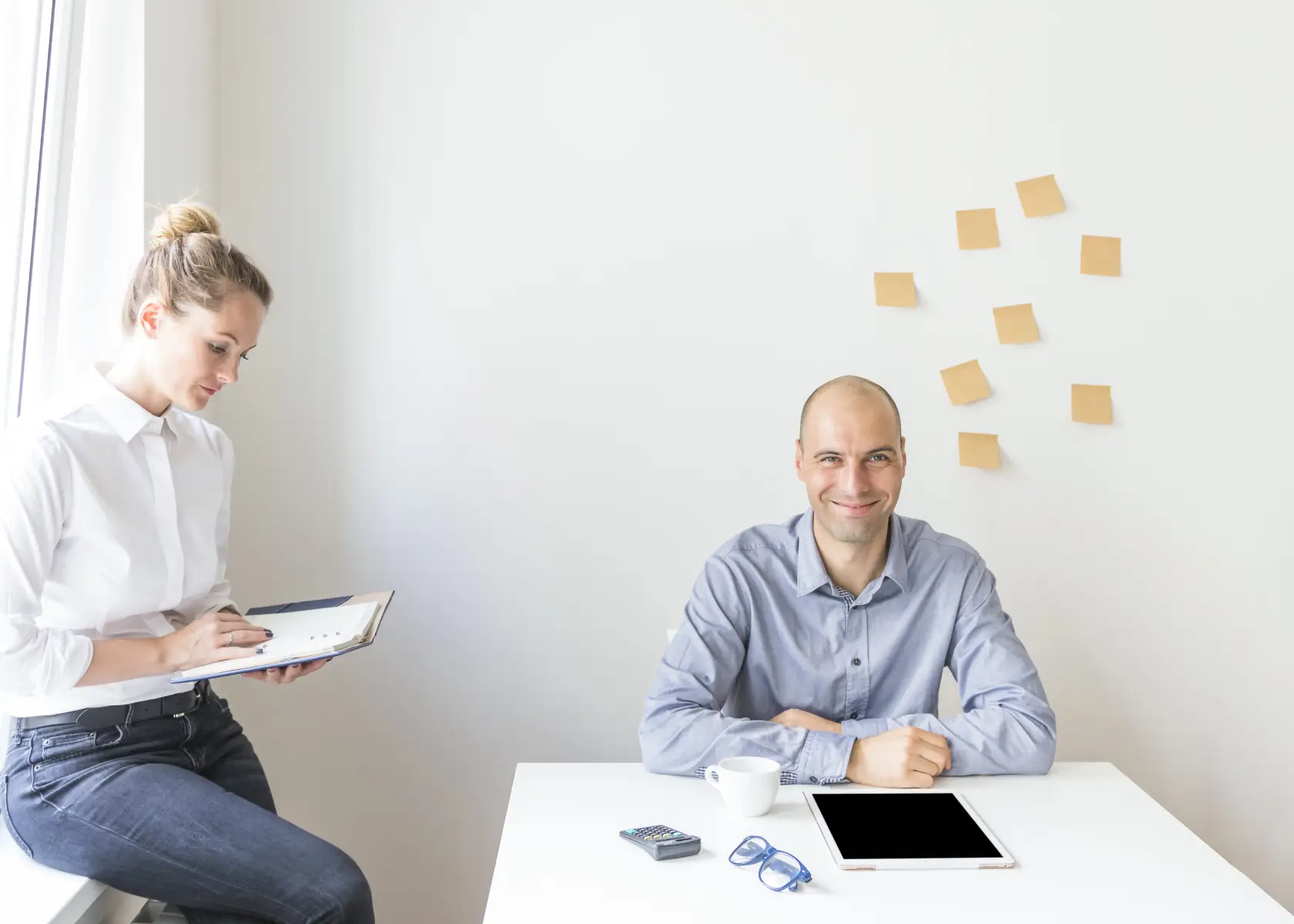Executive Summary
In an era characterised by disruption, uncertainty, and rapid transformation, the ability of professionals and organisations to adapt, innovate, and recover from setbacks has become a competitive necessity. This whitepaper explores how cultivating a growth mindset and psychological resilience at work enables business professionals and leaders to thrive amid constant change. Drawing on the latest research from psychology, neuroscience, organisational behaviour, and real-world best practices, we outline actionable strategies to foster these critical capabilities at every level of the organisation.
SEO focus: growth mindset at work, psychological resilience, workplace adaptability, business performance, professional development.
Table of Contents
- Introduction: The Case for Resilience and Mindset
- Understanding Growth Mindset and Psychological Resilience
- The Business Imperative: Why Organisations Must Invest Now
- Benefits for Individuals, Teams, and Organisations
- Recognising Fixed Mindset Traps and Resilience Risks
- Science and Theory: The Foundations
- Building a Growth Mindset: Core Strategies
- Developing Psychological Resilience: Tools and Techniques
- Embedding Growth and Resilience in Organisational Culture
- Measuring Progress and Sustaining Development
- Case Studies: Growth Mindset and Resilience in Action
- Conclusion: The Competitive Edge
- References and Further Resources
Introduction: The Case for Resilience and Mindset
The world of work is shifting rapidly. Technological innovation, economic upheaval, and rising expectations for performance and adaptability have made traditional capabilities insufficient for long-term success. According to a Deloitte study, resilience—at the individual, team, and organisational levels—is now considered a “make-or-break” business priority.
Alongside resilience, a “growth mindset”—the belief that abilities and intelligence can be developed—is increasingly highlighted as foundational for innovation, continuous learning, and employee engagement. In the words of psychologist Carol Dweck, who originated the term:
“In a growth mindset, challenges are exciting rather than threatening. So rather than thinking, ‘Oh, I’m going to reveal my weaknesses,’ you say, ‘Wow, here’s a chance to grow.’”
This whitepaper explores how these mindsets can be systematically built and sustained in the modern workplace to drive business outcomes and employee well-being.
Understanding Growth Mindset and Psychological Resilience
What is a Growth Mindset?
A growth mindset is the conviction that intelligence, skills, and abilities can be developed through dedication, effective strategies, and feedback—not simply innate talent. Organisations with growth mindset cultures encourage curiosity, experimentation, and learning from failure.
For a detailed introduction, see Mindset Works.
What is Psychological Resilience?
Psychological resilience is the capacity to adapt positively under pressure, stress, or adversity. Resilient professionals are able to “bounce back” from setbacks, maintain well-being, and use challenges as opportunities for learning and growth.
For an overview, see the American Psychological Association guide to resilience.
The Business Imperative: Why Organisations Must Invest Now
Key business reasons:
- The pace of change requires rapid upskilling and adaptation.
- Employee stress and burnout are at record highs.
- Innovation depends on risk-taking and learning from mistakes.
- Resilient teams outperform in turbulent markets and recover more rapidly from setbacks.
- Talent attraction and retention increasingly require supportive, developmental environments.
A Gallup report found that companies with high resilience and learning cultures had 59% lower turnover rates and 50% higher employee engagement.
Benefits for Individuals, Teams, and Organisations
For Individuals
- Greater adaptability to new roles, responsibilities, and technology.
- Improved stress management and well-being.
- Enhanced creativity and willingness to innovate.
- Higher job satisfaction and engagement.
- More effective goal achievement and personal development.
For Teams
- Increased trust and open communication.
- Constructive conflict and problem-solving.
- Stronger collaboration and diversity of thought.
- Faster recovery from failure or setbacks.
For Organisations
- Stronger pipeline for leadership and succession.
- Improved innovation, agility, and competitiveness.
- Better ability to navigate crises and market disruptions.
- Enhanced employer brand and retention.
Reference: CIPD’s factsheet on resilience and mindset.
Recognising Fixed Mindset Traps and Resilience Risks
Understanding the obstacles to growth and resilience is the first step to overcoming them.
Common Fixed Mindset Traps
- Avoiding challenges for fear of failure.
- Viewing feedback and criticism as personal attacks.
- Believing abilities are static or “not my strength.”
- Resisting change or new ways of working.
- Blaming circumstances or others for setbacks.
Indicators of Low Resilience
- Frequent stress and burnout.
- Difficulty recovering from disappointments.
- Poor coping with ambiguity or change.
- Withdrawal or disengagement when faced with obstacles.
- Increased conflict or negativity in teams.
Awareness and early intervention are vital—see the NHS resilience toolkit for more.
Science and Theory: The Foundations
Growth Mindset: Evidence and Impacts
Dr Carol Dweck’s research, detailed in her book Mindset, shows that individuals with a growth mindset embrace feedback, persist in the face of difficulties, and achieve higher performance.
Key science-backed findings:
- Mindset interventions improve achievement, innovation, and job satisfaction.
- Organisations that reward learning, not just results, foster more innovation (see HBR’s article on growth mindset at work).
- Growth mindset is contagious; leaders heavily influence team mindsets.
Psychological Resilience: Key Models
Resilience theory draws from multiple frameworks, notably:
- The 4Cs Model: Control, Commitment, Challenge, and Confidence (Maddi & Khoshaba, 2005)
- Protective Factors: Social support, positive thinking, purpose, and adaptive coping.
- The Stress-Adaptation Curve: Short-term stress can enhance performance; chronic stress impairs it.
Neuroscience research shows that resilience can be developed through mindset, self-awareness, and practising adaptive responses—see NeuroLeadership Institute for evidence-based interventions.
Building a Growth Mindset: Core Strategies
- Reframe Challenges as Learning Opportunities
Leaders and individuals must consciously treat setbacks, change, or feedback as chances for development rather than proof of inadequacy.
Techniques:
- Start meetings by asking, “What did we learn this week?”
- Replace “I can’t do this” with “I can’t do this yet.”
- Publicly celebrate effort, experimentation, and learning—not just final successes.
- Leaders as Growth Mindset Models
Leadership behaviour is critical. Managers who admit mistakes, seek feedback, and celebrate personal development ignite curiosity and risk-taking in others.- Encourage upward and peer feedback loops.
- Be transparent about your own growth goals.
- Revamp Performance Management
Shift focus from static targets and binary assessments to growth goals, feedback, and development plans.- Use OKRs (Objectives and Key Results) to emphasise stretch and learning (WhatMatters.com).
- Build coaching into appraisal processes.
- Language and Framing
The words we use shape mindset. Dweck’s research recommends:- Replace “failing” with “learning”.
- Use verbs (“develop”, “grow”, “experiment”) not nouns (“talent”, “ability”).
- Value process over outcome.
- Continual Learning and Development
Promote and facilitate self-driven learning.- Encourage microlearning and just-in-time learning resources.
- Give employees dedicated time for skill-building and experimentation.
Recommended further reading: MindTools – Growth Mindset.
Developing Psychological Resilience: Tools and Techniques
- Increase Self-awareness and Reflection
- Use journals or digital tools (e.g., Reflectly) to track emotional highs/lows and triggers.
- Hold regular reflective team debriefs after successes and setbacks.
- Strengthen Support Networks
- Facilitate peer support groups or mentoring schemes (PushFar).
- Build psychological safety for sharing challenges and vulnerabilities.
- Create Meaning and Purpose
- Help employees connect day-to-day work to a larger mission or values.
- Engage in meaningful goal setting that transcends immediate business targets.
- Develop Adaptive Coping Mechanisms
- Train resilience skills: breathing techniques, mindfulness, and self-compassion (Headspace).
- Offer resilience workshops focusing on realistic optimism and reframing.
- Encourage Physical and Emotional Well-being
- Implement flexible working options to manage energy.
- Promote breaks, exercise, and mental health days.
- Prepare for and Normalise Setbacks
- Conduct scenario planning and pre-mortems (foreseeing possible difficulties and responses).
- Encourage shared storytelling of overcoming obstacles.
See NHS Mindfulness and Resilience Guide for more tools.
Embedding Growth and Resilience in Organisational Culture
Top Practices:
- Leadership Alignment: Senior executives must visibly champion growth and resilience, model behaviours, and integrate principles into strategy.
- Policy and Process: Embed mindset and resilience into onboarding, training, leadership development, and talent reviews.
- Recognition: Reward experimentation, effort, and learning alongside business results (see CIPD guidance).
- Safe Failure: Create a “no-blame” culture where intelligent risk-taking and learning from mistakes are encouraged.
For a roadmap to culture change, visit McKinsey’s guide on building resilient organisations.
Measuring Progress and Sustaining Development
Measurement Strategies
- Employee engagement and pulse surveys with questions on learning and adaptability.
- 360-degree feedback focused on growth and resilience behaviours.
- Turnover, absenteeism, and well-being statistics to monitor change.
- Performance and innovation metrics, especially in challenging or change-driven periods.
Regularly review outcome data, stories, and improvement areas to keep momentum.
Sustaining Change
- Reinforce practices via regular check-ins and coaching.
- Offer refresher workshops and keep learning resources updated.
- Connect efforts back to business KPIs and share success stories.
Case Studies: Growth Mindset and Resilience in Action
- Microsoft: Becoming a Growth Mindset Organisation
Under CEO Satya Nadella, Microsoft transformed from a “know-it-all” to a “learn-it-all” culture, fostering continuous learning and innovation. The company shifted performance reviews to prioritise learning and growth, not just achievements, resulting in a culture ranked among the world’s most admired for innovation and talent retention.
Further reading: Harvard Business Review on Microsoft Growth Mindset. - NHS: Building Resilience in a High-Pressure Environment
The NHS introduced national well-being and resilience initiatives, including peer-support, coaching, and digital wellbeing tools. These efforts have reduced burnout and improved recovery from high-pressure situations, particularly during the COVID-19 pandemic.
Case examples: NHS People Plan - Google: Reframing Failure and Encouraging Openness
Google’s X Lab encourages “embracing failure” by rewarding teams for sharing ideas that didn’t succeed and the lessons learned. This approach keeps morale high and turns mistakes into critical inputs for future breakthrough innovations.
Google X Story
Conclusion: The Competitive Edge
Growth mindset and psychological resilience are not “nice-to-haves” in the modern workplace; they are strategic assets that enable organisations to innovate, adapt, and thrive in the face of disruption. By investing in these capabilities—in leadership, teams, and organisational culture—businesses unlock higher performance, sustainable engagement, and long-term competitive advantage.
Combining mindset work with robust support systems, practical training, and leadership modelling will ensure not just survival but outperformance in a world where the only constant is change.
References and Further Resources
- Deloitte: Organisational Resilience
- Mindset Works: Science
- Harvard Business Review: Growth Mindset
- CIPD: Mental Health and Resilience
- Gallup: Employee Engagement
- NHS: Mental Health Self-help
- NeuroLeadership Institute: NeuroLeadership Institute
- McKinsey: Resilience
- Reflectly App: Journaling
- Headspace UK: Mindfulness
- Amy Edmondson: Psychological Safety
- PushFar Mentoring Platform: PushFar









